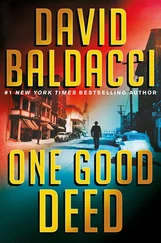Nell was perched on a footstool between the hearth and Willis, Sr.’s chair, speaking quietly with him. Suddenly, they looked in my direction, and I saw Willis, Sr., nod. At which point, Nell gave me a smile so dazzling it nearly blinded me.
“Mr. Willis! You all right?” Paul stood in the doorway, peering suspiciously around the back parlor, clutching a tire iron in one hand and Reginald in the other. He must have realized what an incongruous picture he presented, because he immediately darted across the room to hand Reginald over to me.
“Thanks, Paul.” I deposited Reginald in Bill’s lap, hoping that my bunny would exert a benign influence on my husband’s bad temper. “But I think you’d better get rid of the tire iron before Mrs. Burweed sees it. We’ve only just persuaded her not to call the cops.”
Paul looked over his shoulder and spoke out of the corner of his mouth. “But Master Bill said his father was in grave danger.”
“Did he?” Willis, Sr., looked at Bill, who was conducting a careful survey of the ceiling. “How extraordinary. Perhaps my son suffered a blow to the head when he broke his arm. As you can see, Paul, I am not in any danger, grave or otherwise.”
Paul hefted the tire iron. “I’ll shove this back in the boot, then, and see if this Mrs. Burweed of yours can scare us up a pot o’ tea.”
“And sandwiches,” Nell called. “Lori’s had no dinner.”
“Righty-ho, my lady,” said Paul. He scanned the room and shook his head. “Looks like a ruddy war zone in here.” He turned on his heel and was gone.
“Gerald,” said Willis, Sr., “since this is your home, I feel compelled to ask if you approve of the proposed changes to this evening’s schedule of events. Are you quite up to continuing our discussion?”
“By all means.” Gerald slid his long legs over the edge of the couch and pushed himself to a sitting position. He placed one hand on the pile of pillows to steady himself and lowered the ice bag from his eye, which was swollen shut and livid. The bruise was sure to cover half of his face by morning.
“Christ,” Bill muttered. He passed Reginald back to me and went to sit next to Gerald. “Let me have a look at that.” Gerald tilted his head obligingly and smoothed his chestnut hair back from his forehead. “I’m sorry about this, Gerald.”
“Tush,” said Gerald. “Had I been in your position, I‘d’ve had the bounder’s head off.”
Bill frowned. “I think I should run you in for an X-ray.”
“A cup of tea will suffice.” Gerald raised the ice bag to his eye and extended his hand. “Pleased to meet you, Cousin.”
Bill grinned shamefacedly and took Gerald’s hand gingerly in his own. “Likewise, Cousin. I’ve heard a lot about you, and although I hate to say it, it all seems to be true.”
“I believe I’ll take that as a compliment,” said Gerald.
Willis, Sr., stood. He was a slight man, not nearly as tall or as broad-shouldered as his son, but at that moment he seemed to fill the room. “Before we continue,” he said, fixing each of us with the stem gaze of a disapproving schoolmaster, “I would appreciate it if someone would tell me why the three of you are here. Eleanor, I think.” He clasped his hands behind his back and nodded to Nell. “A brief account, if you please ... ?”
Nell took Willis, Sr.’s instructions to heart—her summary was a masterpiece of concision. She left out so much, in fact, that her entire account of our rich and varied travels took about three minutes and amounted to something along the lines of: “We were worried about you, William, so we followed you.”
Bill’s description of his misadventures at Little Moose Lake was equally succinct: “I was worried about Lori, so I flew over to find out what was wrong. Banged myself up a bit on the way.”
Willis, Sr., nodded sagely, looked from Nell to Bill, then walked over to stand directly in front of me. “Lori? Perhaps you will be more forthcoming?”
Before I could reply, the hall door opened and Mrs. Burweed and Paul came in, bearing tea, a massive spread of sandwiches, and a three-tiered pastry stand filled with butterscotch brownies. Willis, Sr., insisted that I have a bite to eat, but the minute I’d finished his gaze was back on me, kindly yet unwavering.
I answered his question as best I could. “At first,” I said, from my perch on the arm of Bill’s chair, “Nell and I came after you to try to talk you out of leaving Boston.”
“My fault,” said Bill. “If I hadn’t been such an idiot, you’d never have thought of leaving.”
“But you have been an idiot,” Willis, Sr., pointed out.
Bill ducked his head. “I know, and I’m sorrier than I can say, Father. Please don’t leave the mansion because of my stupidity. We need you.”
“I promise you,” Willis, Sr., agreed readily, “I will not leave Boston.”
I stared at him, taken aback by the ease with which he’d thrown up his complex plans. “But what about the house you’ve rented in Finch and all of that office furniture and equipment?”
“I am certain that it will be put to good use,” Willis, Sr., said. “Now, please continue with your account, Lori. You have explained why you followed me at first. Am I to understand that your motivation changed at some point?”
“Almost as soon as I began to meet Gerald’s family.” I glanced hesitantly toward the couch.
“Please, Lori,” Gerald said with a languid wave of his hand, “speak freely. Your father-in-law has been doing so all afternoon.”
“Once I met Lucy and Arthur and Uncle Williston,” I said to Willis, Sr., “I guess I stopped worrying about you and began worrying about ... everything else.”
“Such as?” Willis, Sr., coaxed.
I ticked off items on my fingers. “Such as ... why Gerald left the firm—and why he was seeing Sally. Such as who Sybella Markham was. Such as why you think number three, Anne Elizabeth Court, belongs to you.” I flung my hands up. “It’s a tangle of unconnected bits and pieces, but—”
“You’re half right,” Gerald said softly. “It is a tangle, I’ll grant you, but the bits and pieces are very much connected.” He pressed his palms together and slowly interlaced his slender fingers. “Sybella and Sally ... past and present ... the sins of the fathers and of the sons ...” His voice faded to a whisper as he pressed his clasped hands to his forehead.
Willis, Sr., regarded him steadily. “What a wearisome burden for one man to bear,” he said. “It is time to put it down, Gerald. It is time to tell us the truth.” He resumed his seat, took his pocket watch from his waistcoat, consulted it, and returned it to his pocket. “Considering our earlier discussion and the time factor involved, I would like you to start by telling us the truth about Sybella.”
“I knew it,” Nell said under her breath. “I knew Sybella was real.”
29.
Gerald’s boyish charm had deserted him. He looked exhausted, drained, as though the strain of the past two years had finally overwhelmed him. He leaned forward on the couch, bowed his head, and caught his lower lip between his teeth, just as he’d done in the silent, empty aisle at Saint Bartholomew’s.
“Sybella Markham,” he began, “was the only child of a coachmaker in Bath.” He spoke to no one in particular, in a dazed and distant voice, scarcely moving, and never looking up. “Her parents died when she was still quite young, but her father had made provisions for her future. He’d bought property, from which his daughter would derive an ample income, and he’d placed her welfare in the hands of the most respectable solicitors in Bath.”
“The firm of Willis & Willis,” said Bill.
Читать дальше








